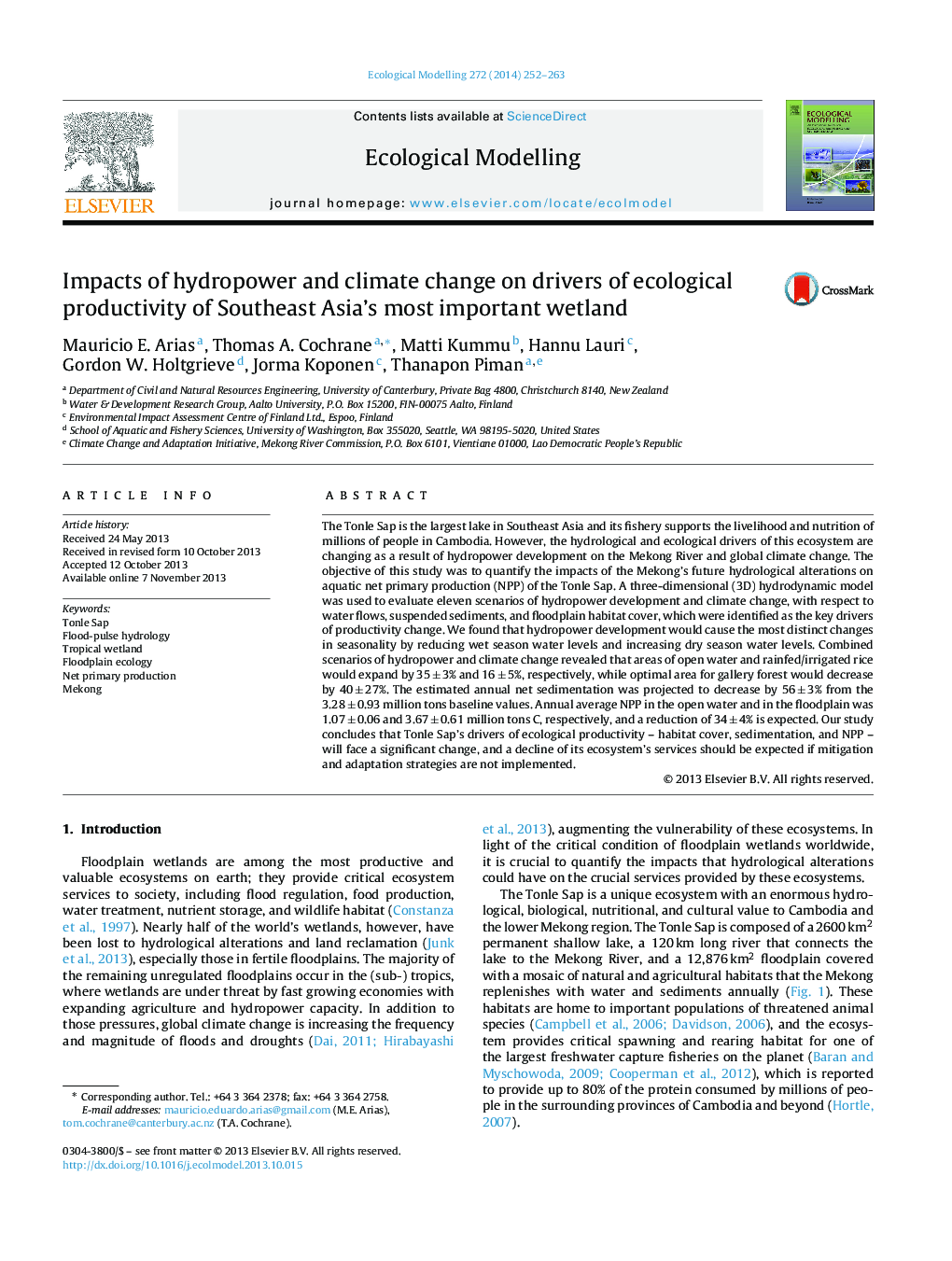| Article ID | Journal | Published Year | Pages | File Type |
|---|---|---|---|---|
| 6297011 | Ecological Modelling | 2014 | 12 Pages |
â¢A 3D model was used to quantify net sedimentation and aquatic productivity.â¢The model was run with scenarios of hydrological and habitat cover change.â¢Hydropower causes distinct seasonal changes and climate change increase uncertainty.â¢Annual net sedimentation is projected to decrease by 53% due to hydropower.â¢Aquatic net primary production is projected to decrease by 9-39%.
The Tonle Sap is the largest lake in Southeast Asia and its fishery supports the livelihood and nutrition of millions of people in Cambodia. However, the hydrological and ecological drivers of this ecosystem are changing as a result of hydropower development on the Mekong River and global climate change. The objective of this study was to quantify the impacts of the Mekong's future hydrological alterations on aquatic net primary production (NPP) of the Tonle Sap. A three-dimensional (3D) hydrodynamic model was used to evaluate eleven scenarios of hydropower development and climate change, with respect to water flows, suspended sediments, and floodplain habitat cover, which were identified as the key drivers of productivity change. We found that hydropower development would cause the most distinct changes in seasonality by reducing wet season water levels and increasing dry season water levels. Combined scenarios of hydropower and climate change revealed that areas of open water and rainfed/irrigated rice would expand by 35 ± 3% and 16 ± 5%, respectively, while optimal area for gallery forest would decrease by 40 ± 27%. The estimated annual net sedimentation was projected to decrease by 56 ± 3% from the 3.28 ± 0.93 million tons baseline values. Annual average NPP in the open water and in the floodplain was 1.07 ± 0.06 and 3.67 ± 0.61 million tons C, respectively, and a reduction of 34 ± 4% is expected. Our study concludes that Tonle Sap's drivers of ecological productivity - habitat cover, sedimentation, and NPP - will face a significant change, and a decline of its ecosystem's services should be expected if mitigation and adaptation strategies are not implemented.
